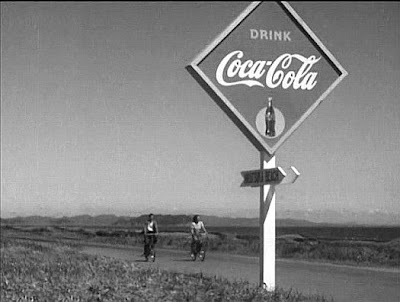Ozu and Chekhov - Differences
 (image from Late Spring)
(image from Late Spring)First of all, Ozu was targeting a very different audience. His system of values was very straight, very traditional; his stories were kind of morality tales: you shouldn't behave badly with your parents; you shouldn't remain unmarried; you shouldn't have affairs; you shouldn't divorce.
Ozu was making popular movies and enjoyed during all his life a huge success of public. The admiration of critics came later, and remained constant, while the public would forget him in the end, as new movies along with TV series were appearing and the memory of the fifties were fading.
Only critics remained constant in their admiration, as they discovered more and more everything that was behind the simple stories.
First of all, there is life, full life in his stories. Yes, the father convinces his daughter to get married and he remains alone (Late Spring); actually he is reluctant to do it, as he fears to remain alone, so the auntie has to push him endlessly; yes, the daughter wants to remain unmarried to take care of his aging father; actually how much is there love and how much the fear of change?
Well, but if we speak about life, with all its complexities, then this is not a difference with the stories of Chekhov :)
The main difference resides in style. I don't mean the simplicity of the stories, targeting a popular audience, I mean the subtlety of the structure on which the story is built. This structure is very different at Ozu. He is the most Japanese of the Japanese film directors.
(Yasujiro Ozu and Setsuko Hara)
(Chekhov)
Labels: Chekhov, Late Spring, Ozu

0 Comments:
Post a Comment
<< Home